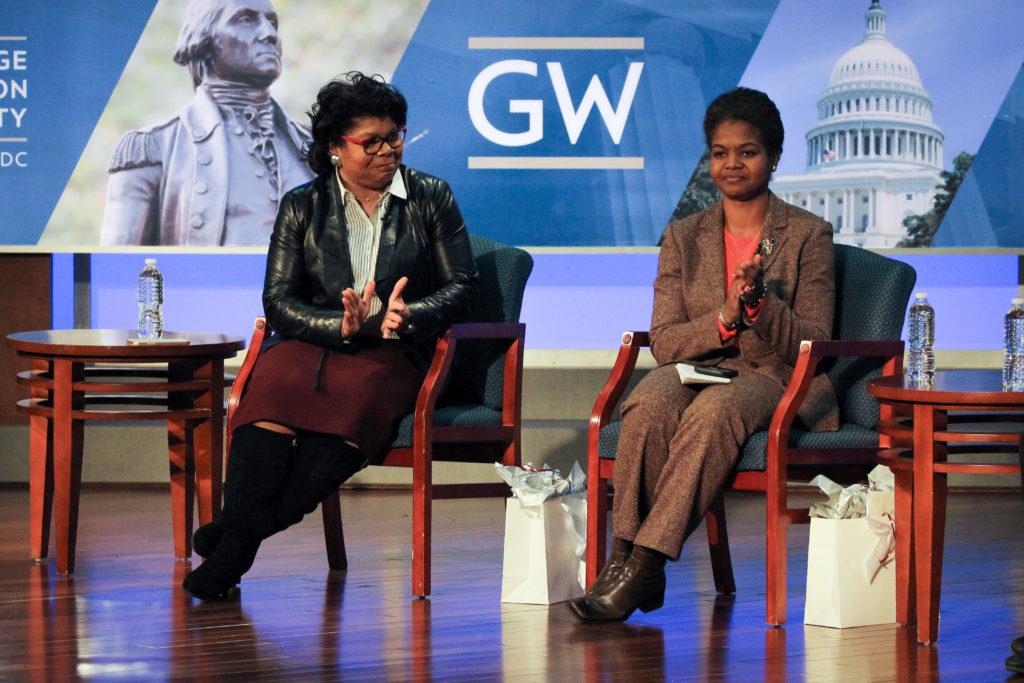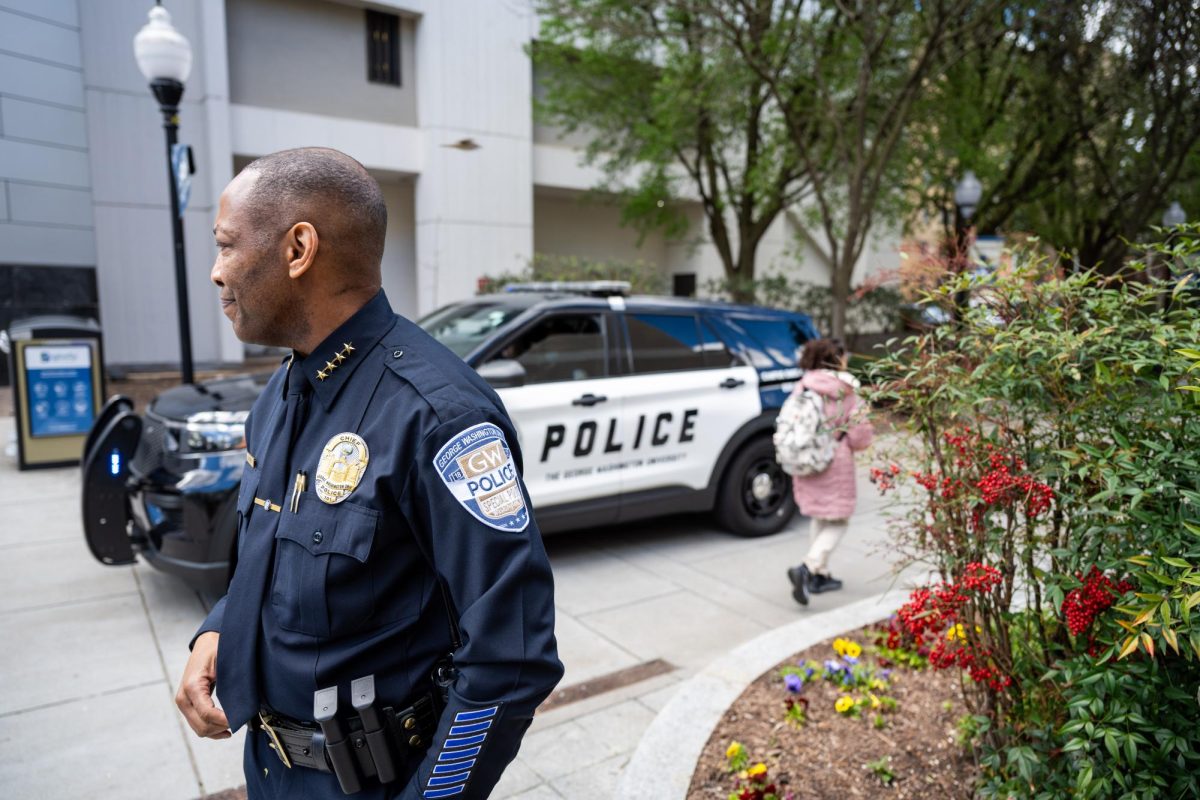Four high-profile political reporters discussed the challenges of covering the Trump administration as black female journalists at a packed panel discussion Thursday in Jack Morton Auditorium.
The event was part of the Black Heritage Celebration, sponsored by the GW chapter of the National Association of Black Journalists and the School of Media and Public Affairs. Cheryl Thompson, an associate professor of journalism and an investigative reporter at The Washington Post, moderated the two-hour discussion.
Panelists discussed how to ensure balanced reporting while covering the White House and the nuances of covering leaders in the administration – especially President Donald Trump – in an unpredictable political climate. At a time when political debate seems to be based more on feelings than facts, the journalists said there is a greater emphasis on double-checking the facts.
The discussion centered on the challenges of being a black female journalist while covering an administration that has disparaged minority communities and targeted social justice activism.
April Ryan, a White House correspondent and the Washington bureau chief for the American Urban Radio Networks, who sat on the panel, said her hard-hitting questions directed at Trump and other administration officials have helped land her in the headlines. While she did not anticipate becoming part of the story, Ryan said that her tough questioning at the daily press breifings has drawn backlash from the administration.
“Mrs. Obama was right – they go low you go high – but sometimes when something comes at you, you got to hit them one good time to let them know I’m not the one,” she said.
Yamiche Alcindor, a White House correspondent and a reporter for PBS Newshour, said Trump entered the White House “like a rockstar” with appeal largely based on his entertainment persona rather than his stances on political issues.
Alcindor added that the kind of rhetoric that comes out of the White House directed at minority communities is often what fuels her to do her best work.
“I’m breaking stories or having stories on the front page because I’m so emotionally invested in something to counterbalance how angry I am,” she said. “I’m reporting out the facts that make people say, ‘OK, this is why people are angry.'”
Darlene Superville, a White House Reporter for the Associated Press, said Trump is well-aware of the chaos he brings to the White House.
She added that trying to get answers to basic questions is often the most challenging part of covering Trump. She said the administration often refuses to answer questions as simple as “Is the president going somewhere?”
“It’s not that anything that you’re asking is super complicated or top-secret,” she said.
The journalists agreed that the topic of race is “always on the table” in Trump’s administration – especially when Trump makes inflammatory remarks about Haitians or the black community.
Nia-Malika Henderson, a senior political reporter at CNN, said Trump continually plays the “race card” in identity politics to win support from his political base. Trump has repeatedly attacked NFL players who kneel during the National Anthem to protest racial injustice.
“I see my role as reflecting how people feel and are registering and analyzing our president’s words, particularly in regard to race,” she said. “We got in this business to hold people to the fire, to reflect the wide range of folks in this country.”





